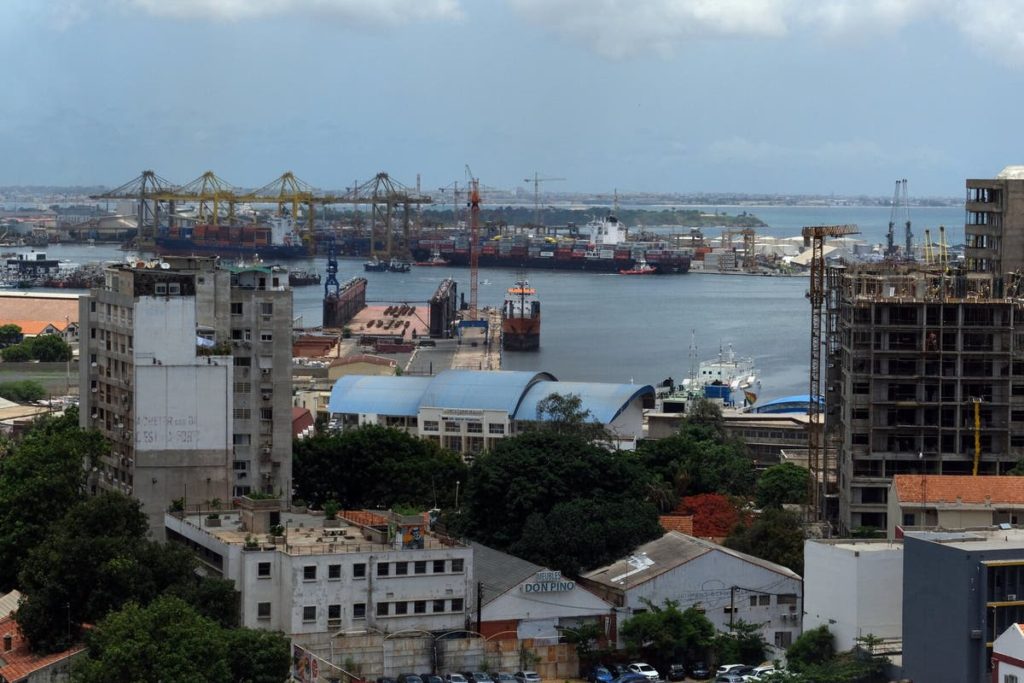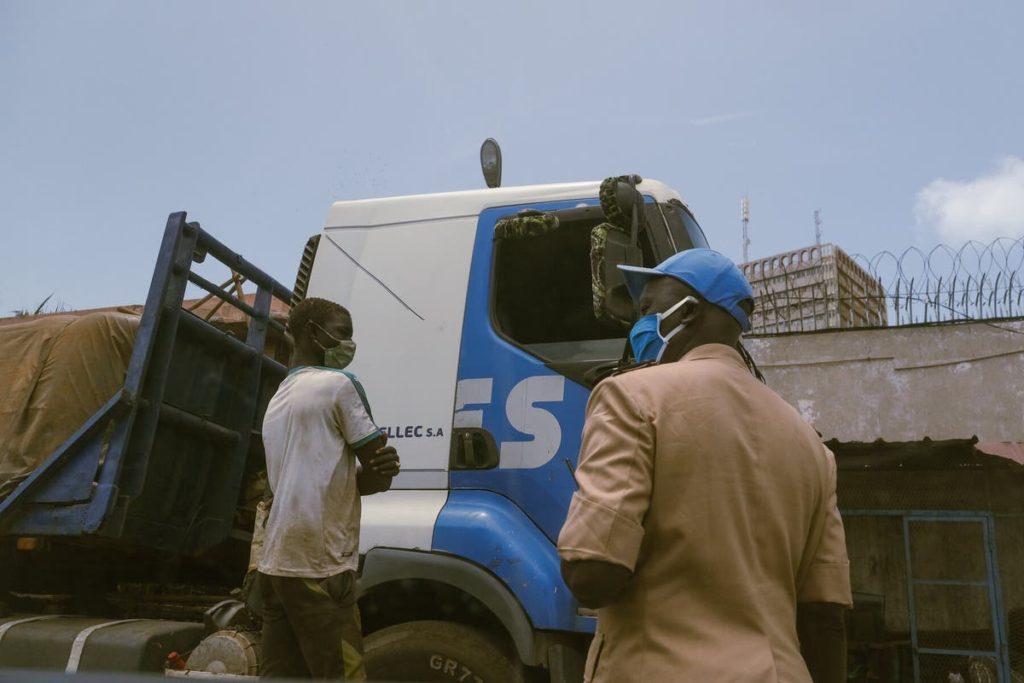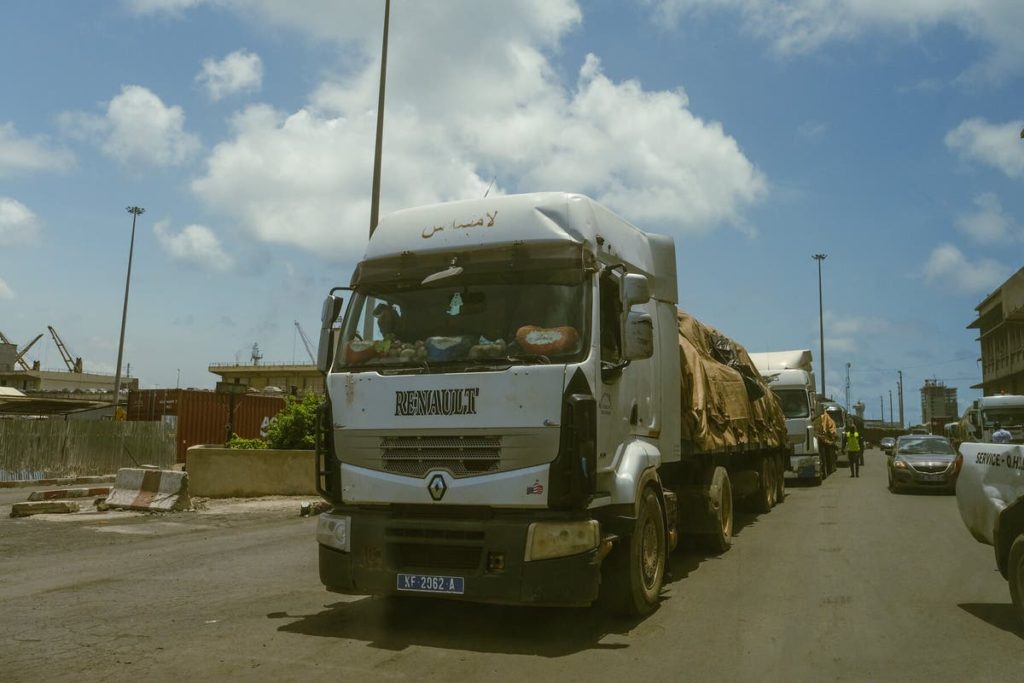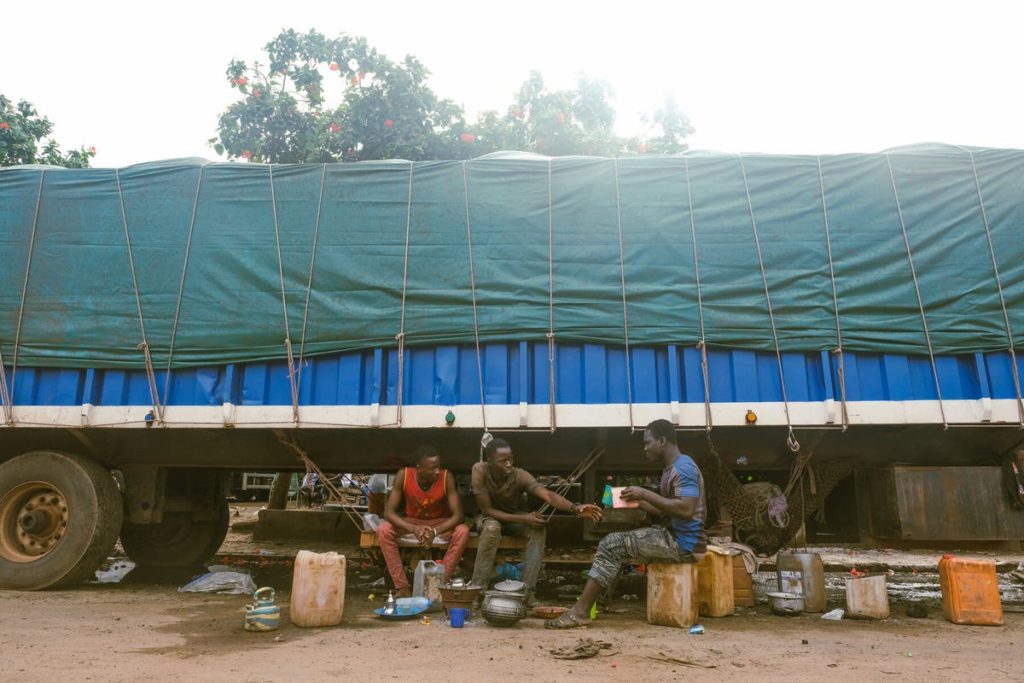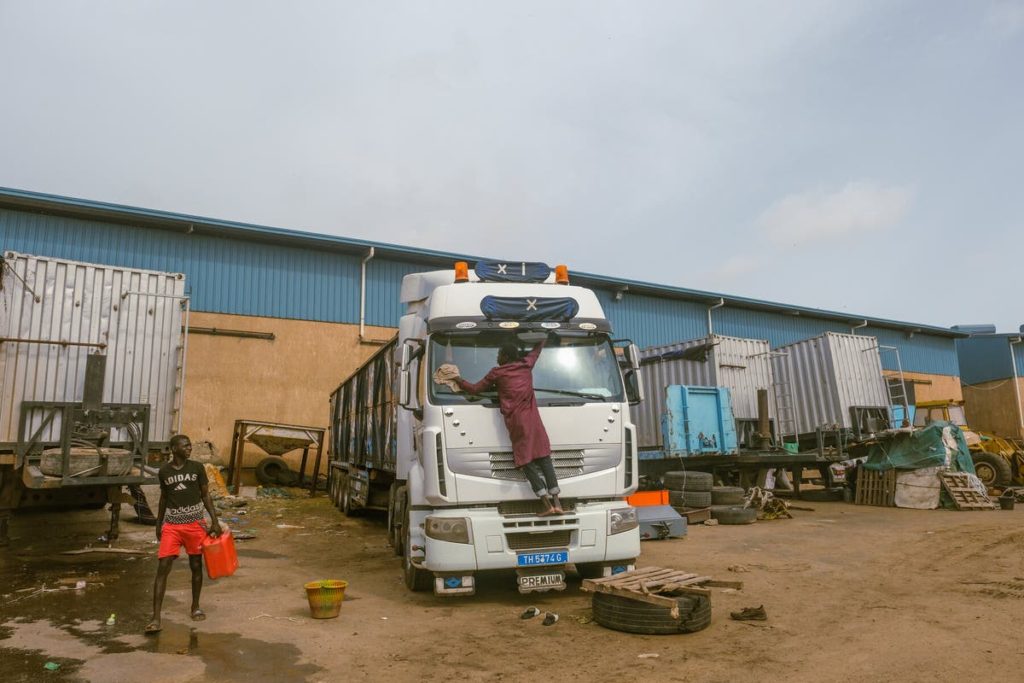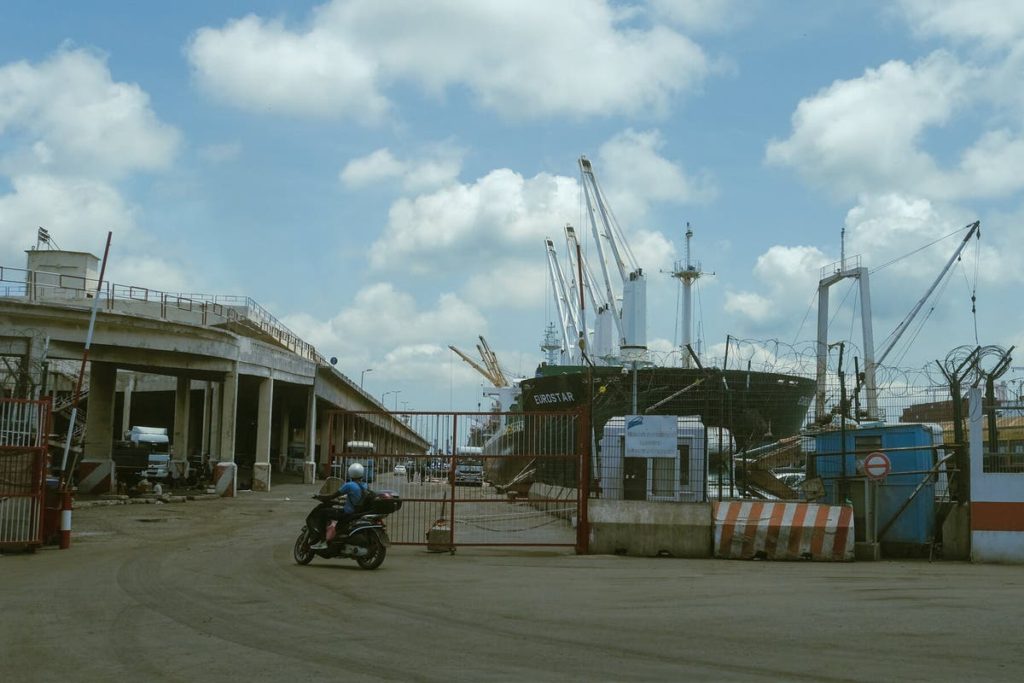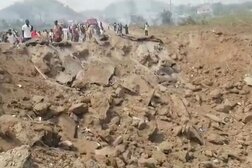After nearly 3,000 tons of ammonium nitrate caused a devastating explosion in Beirut, Lebanon, the West African nation of Senegal discovered the same amount sitting in its port in Dakar.
DAKAR, Senegal — At Dakar’s congested port last week, men in neon orange and yellow jackets waved their arms to speed up a line of trucks carrying away sacks of ammonium nitrate — the compound that exploded at the port in Beirut, Lebanon, three weeks before.
Dock workers in this West African coastal city raised the alarm, port staff said, after news of the massive blast in Beirut, which killed around 200 people and injured at least 6,500. Soon Senegal was scrambling to transport more than 3,000 tons of ammonium nitrate — slightly more than exploded in Beirut — out of Dakar, its densely populated capital.
The trucks were destined for gold mines in neighboring Mali, a landlocked country that has been grappling for eight years with insurgents and instability. And Mali is now in even more tumult, since less than two weeks ago its president was overthrown in a coup d’état.
The disaster in Beirut has prompted countries around the world to scrutinize their own stockpiles of ammonium nitrate and other hazardous chemicals routinely transported on ships, and sitting in ports, experts say. Sometimes, they are adjacent to large population centers.

A truck loaded with cargo waited to leave Dakar’s port last Tuesday, where gridlock made any progress slow. Ricci Shryock for The New York Times
Ammonium nitrate, used as fertilizer and as explosives in mines, is usually harmless by itself but can be dangerous under intense heat and pressure. It has been an ingredient in industrial accidents and acts of terrorism, as in 1995 when white supremacists blew up the federal building in Oklahoma City.
“After what happened in Beirut, many ports, many authorities are checking, reviewing their policies,” said Alfredo Parroquín-Ohlson, head of cargoes and technical cooperation coordination at the International Maritime Organization, a United Nations agency, “and of course, what they have in the storage.”
Since the blast in Beirut, Egypt has been trying to get rid of dangerous material abandoned at its ports, and the police in Romania have seized 8,500 tons of ammonium nitrate, news reports say. And in India, 700 tons of it lying near the port city of Chennai for five years was moved to Hyderabad, according to other reports.
More than 20 million tons of ammonium nitrate is produced every year, nearly half by Russia.
Inside Dakar’s port last week, trucks topped with tarpaulins and loaded with sacks of the chemical edged past trucks carrying metal wire and Buffalo brand rice.
As they awaited their chance to inch ahead in the gridlock, drivers leaned out of the windows of cabs decorated with pictures of sheikhs and slogans like Alhamdoulillahi — Praise be to God.
“Fourteen hundred tons of it are already gone,” said Seydou Toure, a senior policeman at the port, last Wednesday. That was 40 trucks’ worth, he said.

Cargo trucks, some carrying ammonium nitrate, waiting to leave the Dakar port. Ricci Shryock for The New York Times
Port officials in Dakar refused to say how long the ammonium nitrate had been stored at the port, which ship or ships carried it in or why the stockpile had built up.
At least seven hundred tons was moved for the chemical company Maxam, destined for use in gold mines in Loulo and Gounkoto, said Marc Dabou, secretary general of Mali’s ministry of transport and urban mobility.
These mines are not in northern or central Mali, where armed groups operate, but in the west, near the Senegalese border.
Mr. Dabou said that about 20,000 tons of ammonium nitrate is brought into Mali every year, and that the material was moved “in perfect conformity with the transportation rules for dangerous merchandise.”
On its own, ammonium nitrate is not particularly combustible, experts say, but if contaminated with gasoline or oil, or stored in containers that burn easily, like wooden boxes, it can become extremely flammable.
It is still not known exactly what triggered the explosion in Beirut.

In normal times, around 700 trucks leave Dakar every day for Mali, to the east. Ricci Shryock for The New York Times
Internationally agreed-upon recommendations apply to the transport of dangerous cargoes like oils, liquefied gases and materials like ammonium nitrate. But it is up to states themselves to enforce them.
“These recommendations are not mandatory, because all ports are different, all administrations are different,” said Mr. Parroquín-Ohlson at the International Maritime Organization.
This means there is room for serious gaps in policy, port procedures or staff training, he said.
In normal times, around 700 trucks leave Dakar for Mali every day. But coronavirus restrictions and instability in Mali have slowed the traffic, some port officials said.
At a truckers’ parking spot in Dakar’s warehouse district last week, Malian drivers looked at pictures of ammonium nitrate on their cellphones as they waited to get on the road, sitting on broken chairs and plastic mats by a weigh station.
The conversation on their truckers’ trade union WhatsApp group was all about the chemical.
“It’s the first I’ve heard of that product,” said Oudou Bamba, the head of his convoy of truck drivers, “but we got a message from one of our friends saying this is not something new. He’s been driving it for years.”
“It’s a bit dangerous, though,” said Salif Koné, another Malian driver.

Daouda Diop transports candy between Senegal and Mali. On Sunday he cleaned his truck in Dakar before leaving for Bamako, Mali’s capital. Ricci Shryock for The New York Times
They had already had a tough year. If the coronavirus pandemic and the resulting extra regulations at borders had been bad for business, Mr. Koné said, the Mali coup was going to make things even worse because of the uncertainty it brought.
They and more than 100 unionized colleagues met last Tuesday to discuss the dangers of products like ammonium nitrate and how best to load and drive it.
Gorgui Diouf, a truck driver setting off for Mali with a load of ammonium nitrate for the border post at Kidira, Senegal, said over the phone on Wednesday that he was unsure whether it would be open. The rules had changed so often over the past few months, from the coronavirus, then a temporary relaxation of controls because of Senegal’s most important festival, Tabaski, and then, after the coup in Mali on Aug. 18, border closures threatened by the regional organization of states.
But once the trucks do cross the border into Mali, one Senegalese port official said, the cargo is no longer his responsibility.
“How the stuff is organized when it gets to Mali, I don’t know. It’s not my job,” said the port official, who declined to be identified by name because he was not authorized to speak by his superiors. Many port officials, including those superiors, refused or ignored requests to speak.
“In all ports around the world you have the passage of dangerous cargo,” the official said.

Dakar’s port is one of West Africa’s oldest and used to have more of a monopoly on goods going to landlocked countries in the region. Ricci Shryock for The New York Times
If Dakar had not accepted the ammonium nitrate, a port in Ivory Coast or Ghana might have, and Senegal would have lost business.
Dakar has one of the oldest ports in West Africa, dating from 1867, and used to have a greater share of the goods going to landlocked countries in the region. But now Dakar faces competition.
Many of the region’s ports are trying to increase their capacity. Dakar is building a new container terminal. The port in Abidjan, Ivory Coast, is undergoing a $1.8 billion expansion financed mainly by China’s Eximbank.
But restrictions on movement during the coronavirus pandemic and the associated economic downturns mean ports are more backed up than usual, experts said — so cargoes can sit around for longer, increasing the risk that they could be contaminated or forgotten.
As thunderclouds rolled over Senegal’s peninsular capital, prematurely darkening the late-afternoon sky, the lights coming from ships on the horizon began to gleam. They were waiting to dock.
“The threat is there,” said the port official who declined to be named. “We can’t deny it.”
FEATURED IMAGE: Dakar’s port, where ammonium nitrate was stored, is next to the densely populated center of the city, Senegal’s capital. Ricci Shryock for The New York Times
By Ruth Maclean/The New York Times

